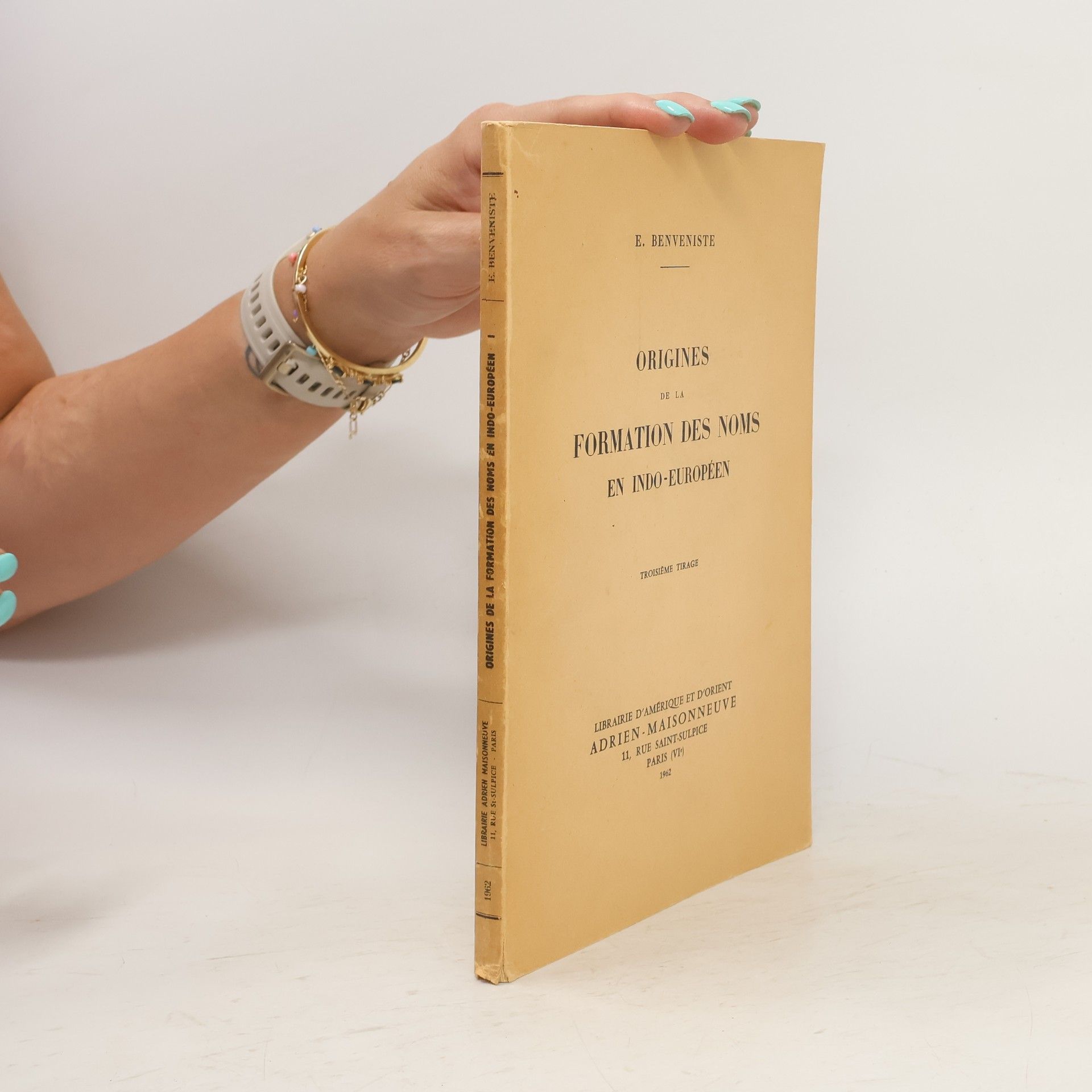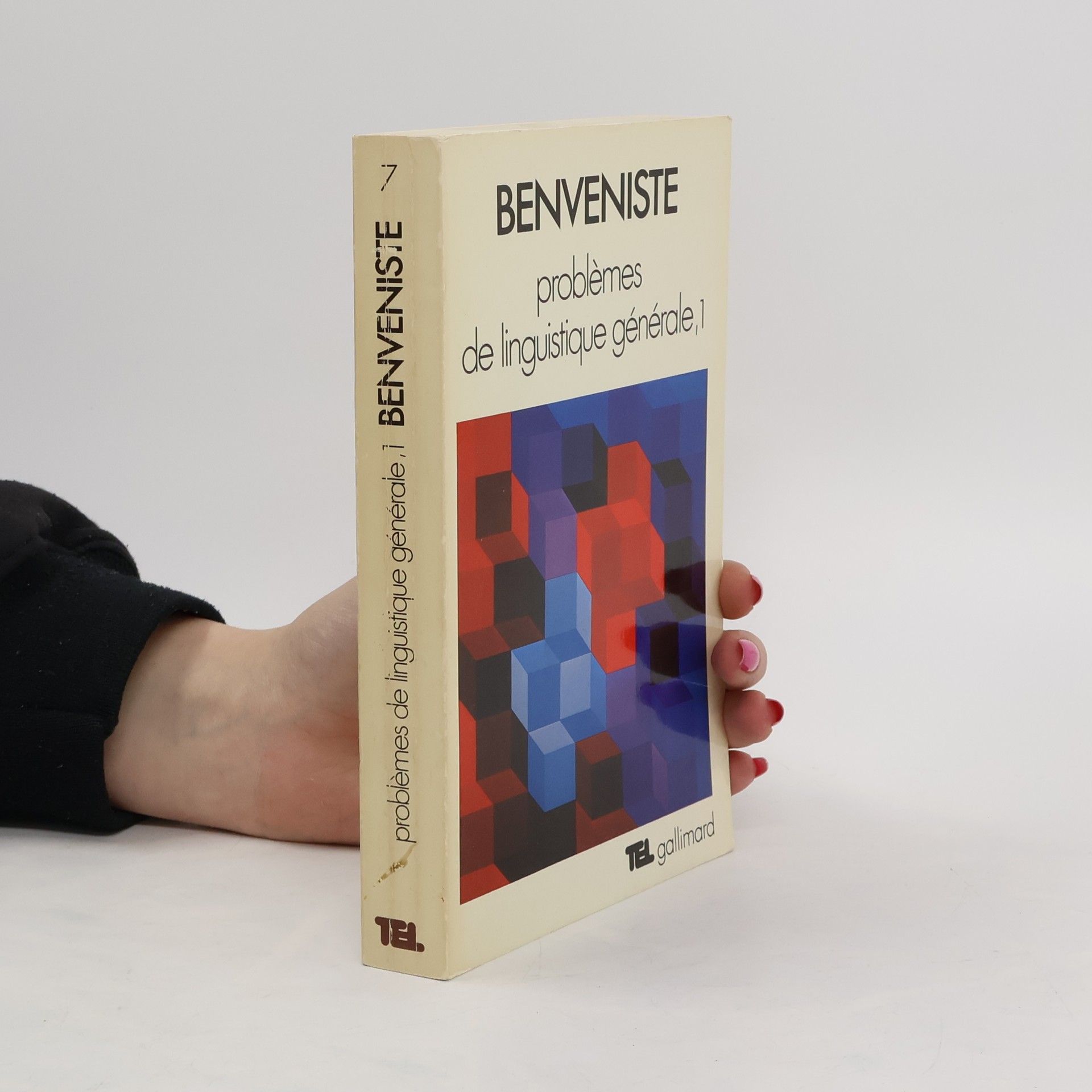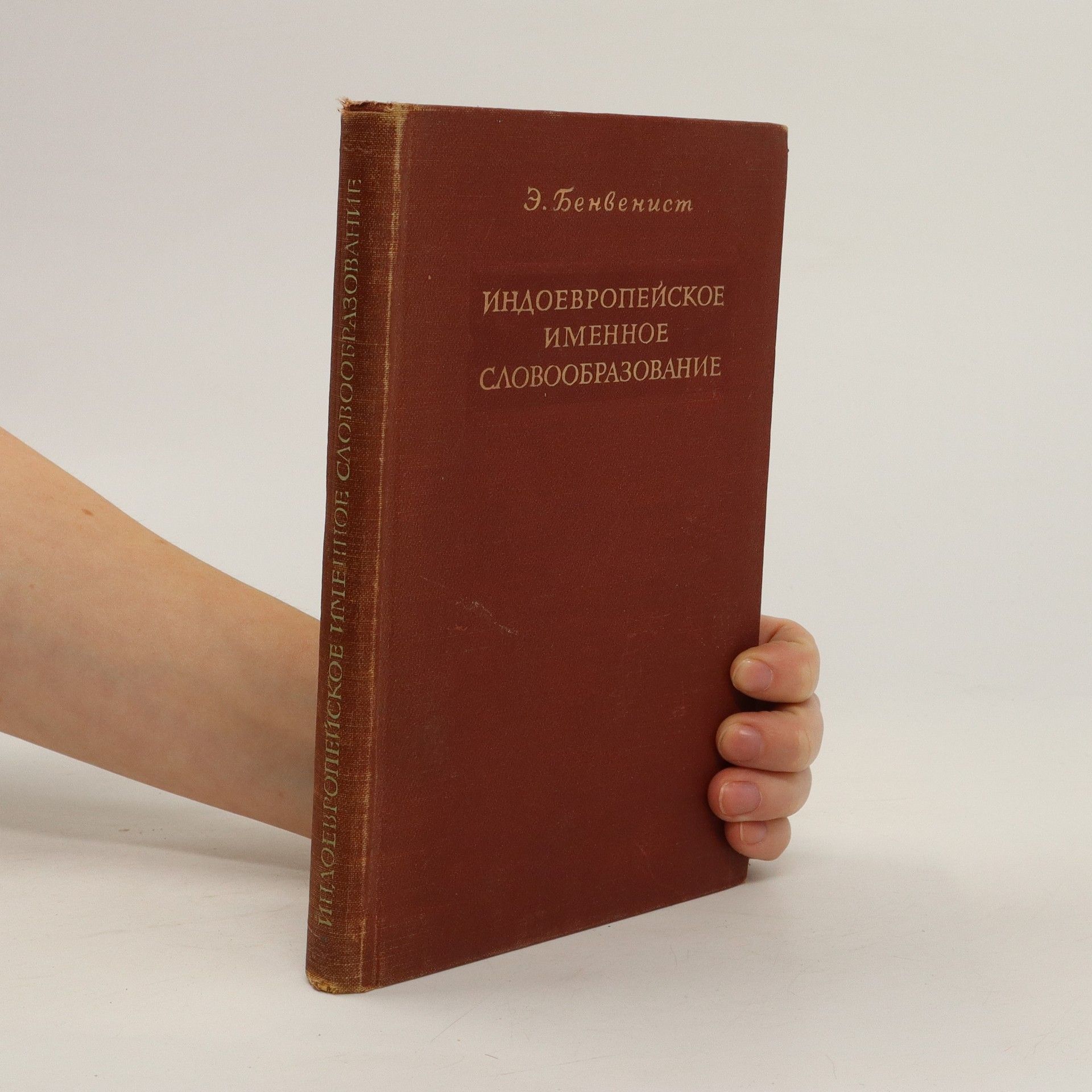Émile Benveniste Knihy
Émile Benveniste bol francúzsky štrukturalistický lingvista a sémiotik, ktorého kľúčové práce sa zamerali na indoeurópske jazyky. Zásadným spôsobom prepracoval lingvistický paradigmat stanovený Ferdinandom de Saussurom. Jeho analýzy osvetlili hlboké vzťahy medzi jazykom, myslením a kultúrou, čím ovplyvnil viaceré humanitné odbory. Benvenisteov vplyv dodnes rezonuje v lingvistike, filozofii a sémiotike.

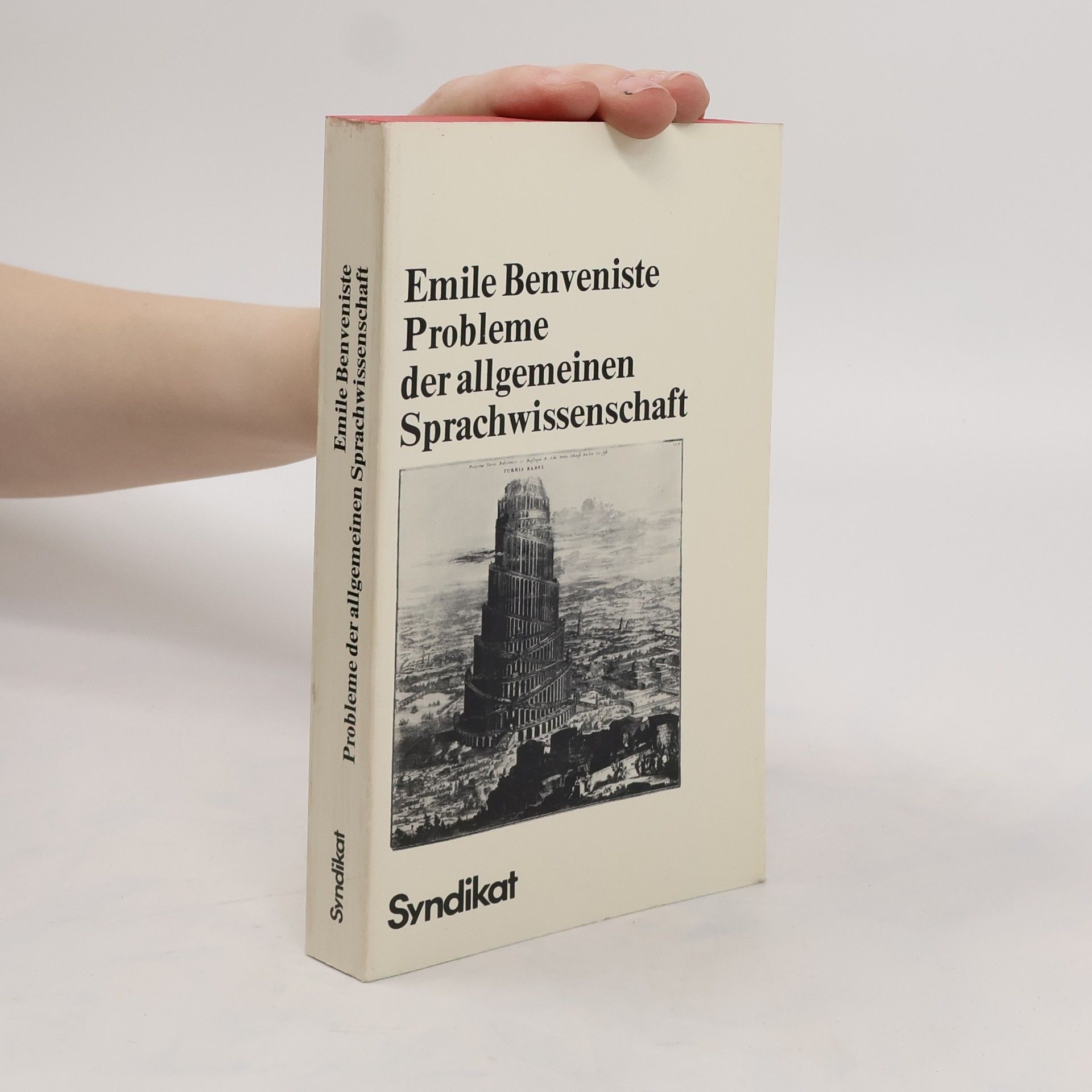
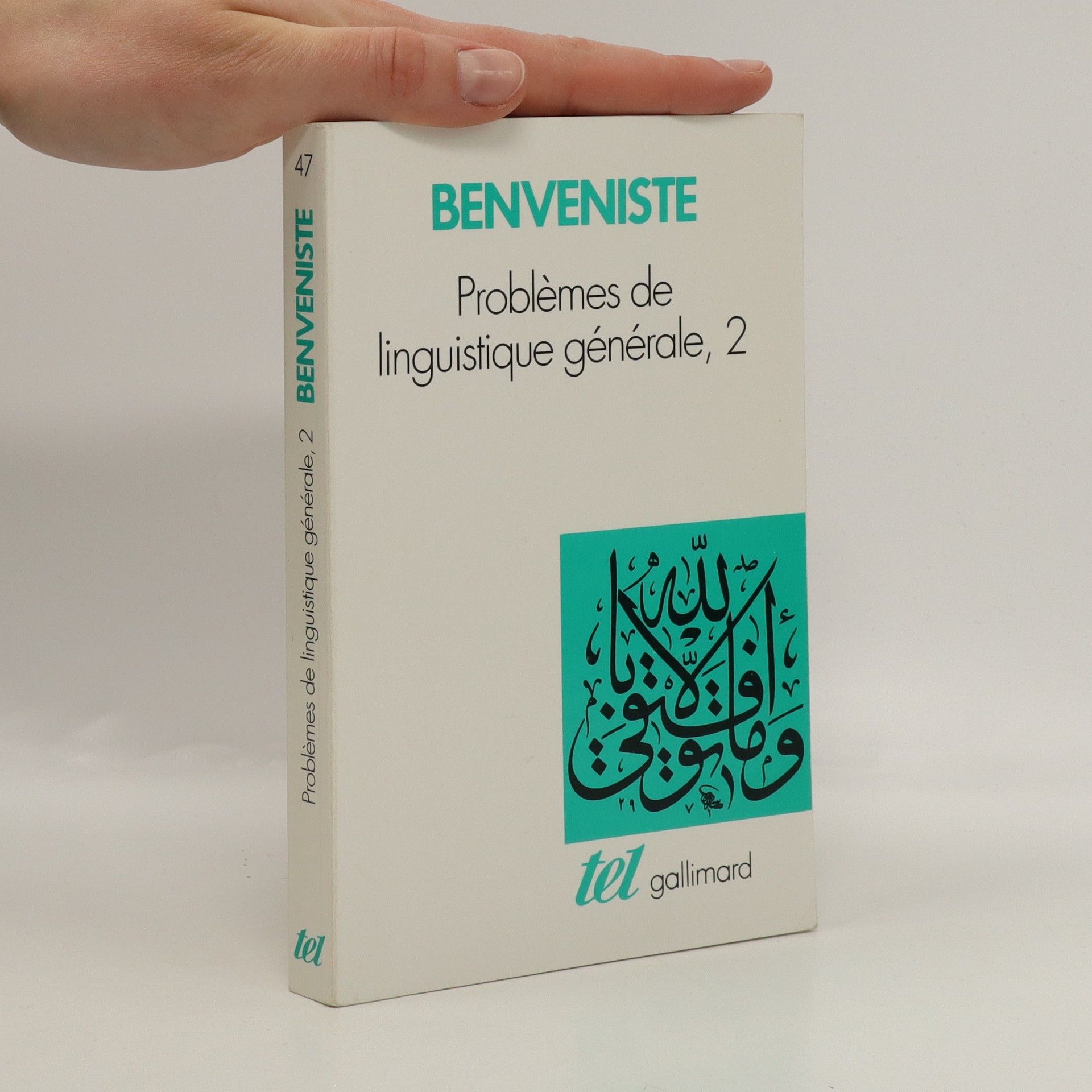


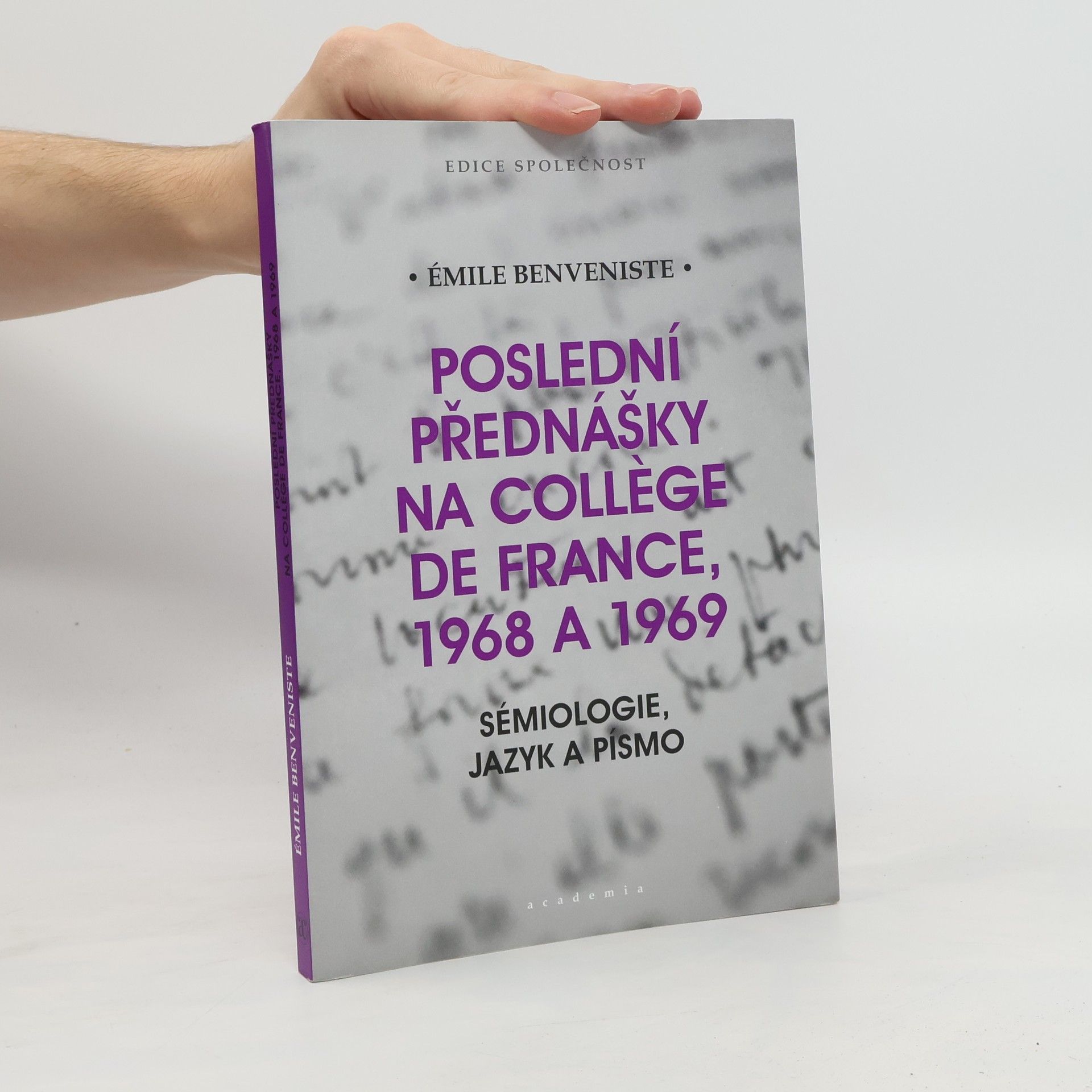
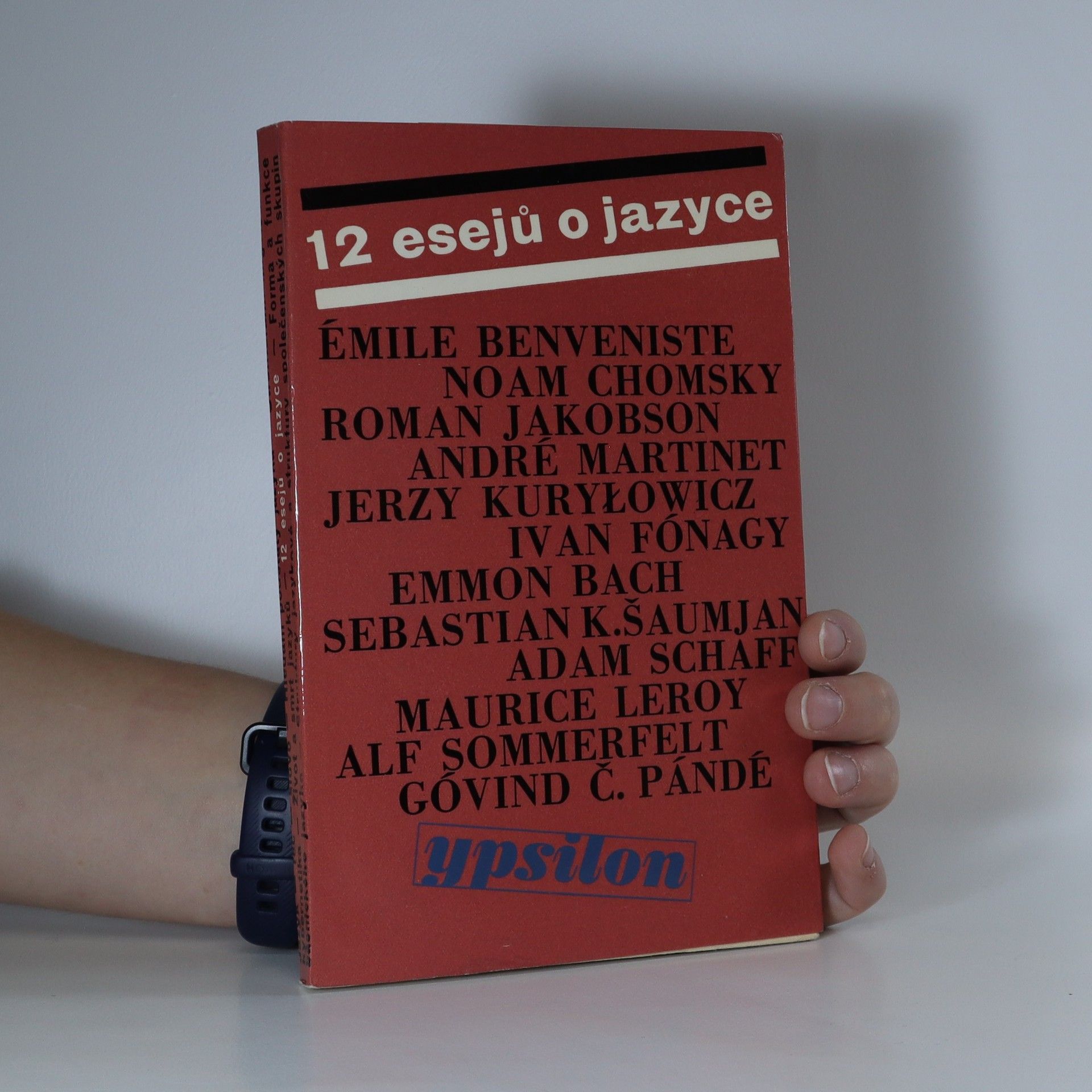
Poslední přednášky na Collége de France 1968 a 1969
- 192 stránok
- 7 hodin čítania
V roce 1969 přednášel francouzský lingvista Émile Benveniste na Collège de France naposledy. Na začátku zimního semestru onemocněl tak těžce, že se nemohl dál věnovat ani teorii řeči a základům teorie písma, na nichž v té době pracoval, ani své pedagogické práci. Jeho poznámky k poslednímu kurzu, doplněné a upřesněné díky dochovaným zápiskům studentů, tvoří hlavní část této posmrtně vydané knihy. Ve své teorii řeči Benveniste proti sobě klade obecné významy slov, jež sdílíme jako mluvčí nějakého jazyka, a jedinečný smysl výpovědi, který vždy vzniká přetavením těchto obecných významů v rámci konkrétní mluvní situace. Autorova teorie písma se opírá o jeho výzkum rozmanitých systémů psaní, jak se ustavily v odlišných kulturách. Benveniste tvrdí, že písmo původně odkazovalo přímo k věcem a že v zápis mluvy se proměnilo až poté, co vynálezci písma začali v živé mluvě rozlišovat opakující se prvky jazyka. Benvenistovy přednášky představují důležitý pramen pro lingvisty, sémiology, filozofy jazyka i literární vědce, ovšem díky autorovu průzračnému stylu jsou snadno dostupné i čtenářům, kteří nejsou v uvedených oborech zběhlí. Text Posledních přednášek doplňuje úvodní studie Tzvetana Todorova a doslov Julie Kristevy.
Studie z obecné lingvistiky
- 372 stránok
- 14 hodin čítania
Osobnost Émila Benvenista symbolizuje vývoj věd o člověku ve dvacátém století. Začal svou kariéru studiem málo známých jazyků a postupně se stal klíčovou postavou evropského myšlení, přičemž byl přítomen zrození a rozkvětu moderní lingvistiky. Jako představitel strukturalistické lingvistiky inspiroval francouzské filosofické myšlení. Jeho úvahy o jazyku jako systému, nezachytitelnosti řeči a artikulaci lidské subjektivity stály u zrodu poststrukturalismu. Po jeho odmlce byly myšlenky znovu oživeny a našly nový výraz v literárním myšlení, otevírajíc nový způsob uchopení neuchopitelného. Studie v této knize pokrývají základní témata Benvenistova myšlení o jazyce: polemiku se strukturalismem, řešení problémů morfologie a syntaxe z pragmatického pohledu, otázku artikulace subjektivity v jazyce, vztah jazyka a společnosti a teorii dvou modalit lingvistického bádání – sémiotiky a sémantiky. Benveniste byl dlouho považován za indoevropeistu s několika vhledy do filosofie řeči. Celkový pohled na jeho dílo však ukazuje, že byl komplexním teoretikem komunikace, usilujícím o pochopení základních otázek vztahu člověka, řeči a světa, a umožňuje správně zhodnotit jeho místo v dějinách myšlení 20. století.
Dictionary of Indo-European Concepts and Society
- 594 stránok
- 21 hodin čítania
Since its publication in 1969, Émile Benveniste’s Vocabulaire—here in a new translation as the Dictionary of Indo-European Concepts and Society—has been the classic reference for tracing the institutional and conceptual genealogy of the sociocultural worlds of gifts, contracts, sacrifice, hospitality, authority, freedom, ancient economy, and kinship. A comprehensive and comparative history of words with analyses of their underlying neglected genealogies and structures of signification—and this via a masterful journey through Germanic, Romance, Indo-Iranian, Latin, and Greek languages—Benveniste’s dictionary is a must-read for anthropologists, linguists, literary theorists, classicists, and philosophers alike. This book has famously inspired a wealth of thinkers, including Roland Barthes, Claude Lévi-Strauss, Pierre Bourdieu, Jacques Derrida, Umberto Eco, Giorgio Agamben, François Jullien, and many others. In this new volume, Benveniste’s masterpiece on the study of language and society finds new life for a new generation of scholars. As political fictions continue to separate and reify differences between European, Middle Eastern, and South Asian societies, Benveniste reminds us just how historically deep their interconnections are and that understanding the way our institutions are evoked through the words that describe them is more necessary than ever.
Problèmes de linguistique générale. II
- 286 stránok
- 11 hodin čítania
Ce second volume de Problèmes de linguistique générale réunit vingt études importantes parues de 1965 à 1972 qui complètent une vaste introduction à une problématique du langage. Les deux premiers articles, sous forme d'entretiens, traitent de l'évolution de la linguistique et des changements survenus dans les doctrines du langage. On passe ensuite au problème fondamental de la communication et du signe, au développement de la sémiologie de la langue. La notion de structure - structure de la langue et structure de la société - et celle de fonction sont l'objet des études suivantes. La syntaxe vient ensuite avec la composition nominale et les relations d'auxiliarité. Deux études visent à montrer comment l'homme est implicite dans la langue, "L'antonyme et le pronom en français moderne" et "La forme et le sens dans le langage". Enfin on trouvera dans les derniers chapitres la poursuite de recherches sur la genèse de certains termes culturels ou concepts importants comme l'histoire du terme "scientifique" , l'étude de "la blasphémie et l'euphémie" ou l'analyse de "deux modèles linguistiques de la cité".
Probleme der allgemeinen Sprachwissenschaft
- 406 stránok
- 15 hodin čítania
